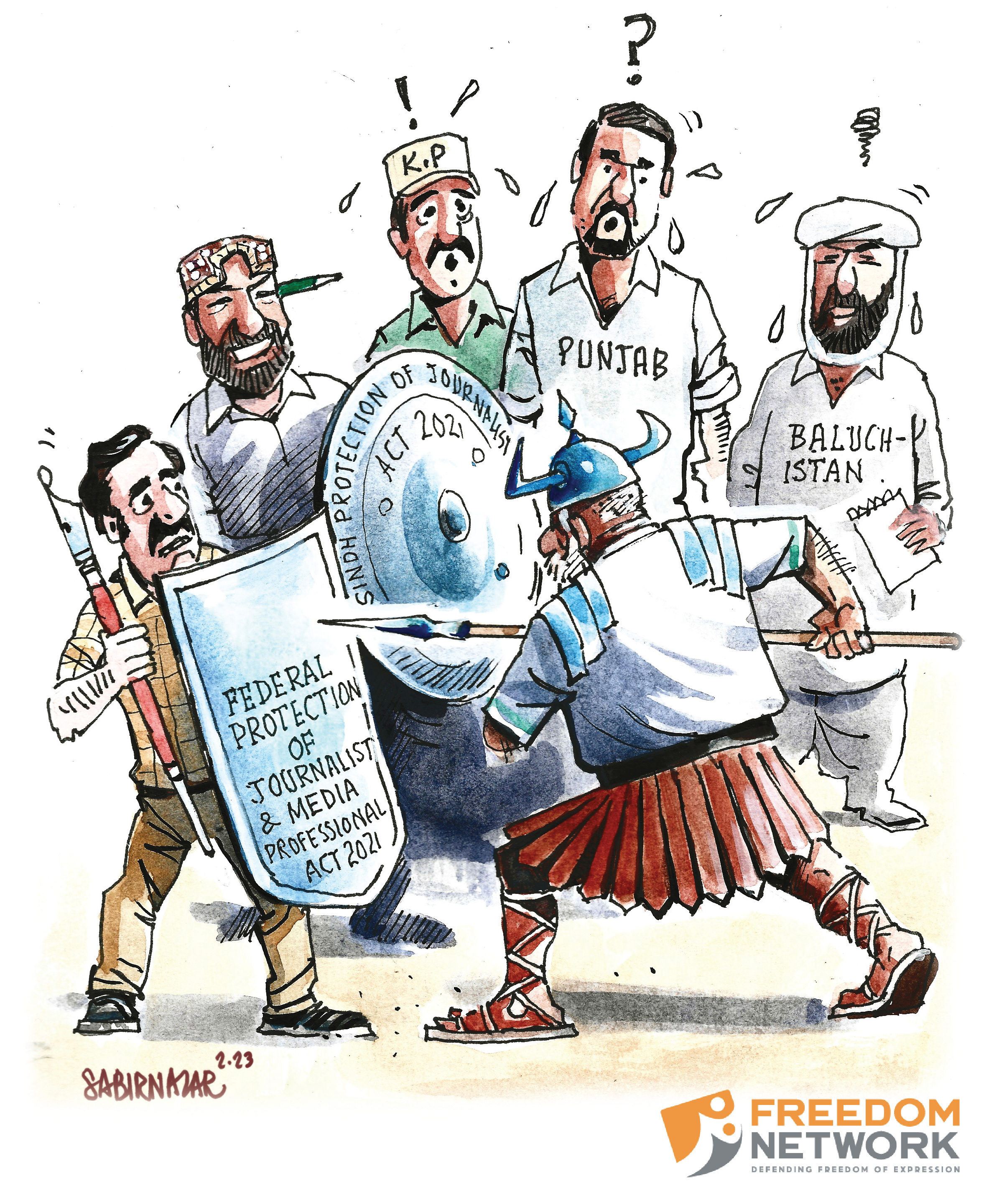Press Release
ISLAMABAD, 26 July 2023: Premier media watchdog Freedom Network welcomes the consensus on the need for media reforms in Pakistan and the inclination of engagement between media stakeholders and the government on this but is disappointed at the way some controversial changes to the Pakistan Electronic Media Regulatory Authority (PEMRA) have been proposed which are counterproductive and constitutes a lost opportunity for reforms based on needs and best practices.
The federal government unveiled this month a set of amendments to PEMRA rules that range from defining disinformation and misinformation, to linking the payment of government advertising for the broadcast media to the payment of salaries of its workers, and from representation of media owners and media workers in the regulatory body to making it tougher to suspend TV channels.
“While the focus of the intended reforms is laudable, how the government has gone about proposing amendments to the PEMRA law is akin to sabotaging its own efforts and several of the proposed changes being counterproductive to the spirit of reforms,” Freedom Network said in a statement in response to the changes made public by the government.
The federal Ministry of Information and Broadcasting said the proposed amendments are the result of an 11-month consultative process with the Joint Action Committee comprising representatives of Pakistan Federal Union of Journalists (PFUJ), All Pakistan Newspaper Society (APNS), Council of Pakistan Newspaper Editors (CPNE), Association of Electronic Media Editors and News Directors (AEMEND) and Pakistan Broadcasters Association (PBA).
“Media exists for the principal benefit of the citizens but while various stakeholders have been consulted, the primary stakeholder – the citizens, who are information consumers and have been guaranteed the right to information under Article 19-A of the Constitution, have not been part of the process,” the statement said.
“In absence of citizens’ perspectives in the shape of civil society represented through media development organizations, human rights groups, digital and women’s rights advocates, the process was exclusive and non-transparent as media consumers learnt about the ‘final result’ instead of having been involved throughout the process. Under a democracy, citizens should have been provided the opportunity of providing inputs – this glaring omission is painful and compromises the rights of citizens,” it added.
Some of the proposed changes are also problematic. “Giving media houses two months to pay salaries to working journalists and other staff is violation of existing labor laws which make salary payment within a month period or by the tenth of next month binding,” Freedom Network said. If this change is approved, all other industries and corporate sector will cite this as justification of delayed salaries and violate rights of workers throughout the country, it warned.
Another sticking point are the proposed definitions of disinformation and misinformation. “This is an issue of self-regulation, and it is the job of the editor to enforce. Enforcing these definitions through law means allowing PEMRA, whose mandate is to regulate the media industry not media content, to become the de facto editor of all news and information on TV channels,” Freedom Network emphasized. “This appropriation of a key role in the independence of media is unacceptable.”
Allowing PEMRA to decide which media information is disinformation or misinformation is an attempt to replicate the hugely controversial function of Section 20 of the PECA Act in the PEMRA law which allows bureaucrats to sit in judgment on freedom of expression. “Let the editors and newsrooms deal with this issue instead of government appointed officials of PEMRA,” it added.
Additionally, while proposing the inclusion of representatives of PFUJ and PBA in PEMRA is a step in the right direction, not giving them the right to vote makes their representative tokenistic, not meaningful. This must be rectified while Clause 27 must also be changed to allow the Council of Complaints to first discuss any violation before taking any punitive action against any program or TV channel.
Freedom Network said that it is ironic that the government is proposing these coercive and unfair changes to PEMRA which regulates only the private broadcast sector, not public media sector. “The government must bring the state-owned media such as PTV and PBC within the ambit of the PEMRA law so that the same rules and regulations can be applied to media under its control and end two separate media laws and regulations in the country,” it added.
Freedom Network urged the government to immediately put on hold the proposed changes in PEMRA law, and to allow for a greater inclusive and transparent process of consultations, including by media watchdogs and citizens groups, so that good intentions are not clouded by bad process and misplaced emphasis on over-regulating the media does not end up diminishing freedom of expression and access to information. —ENDS


